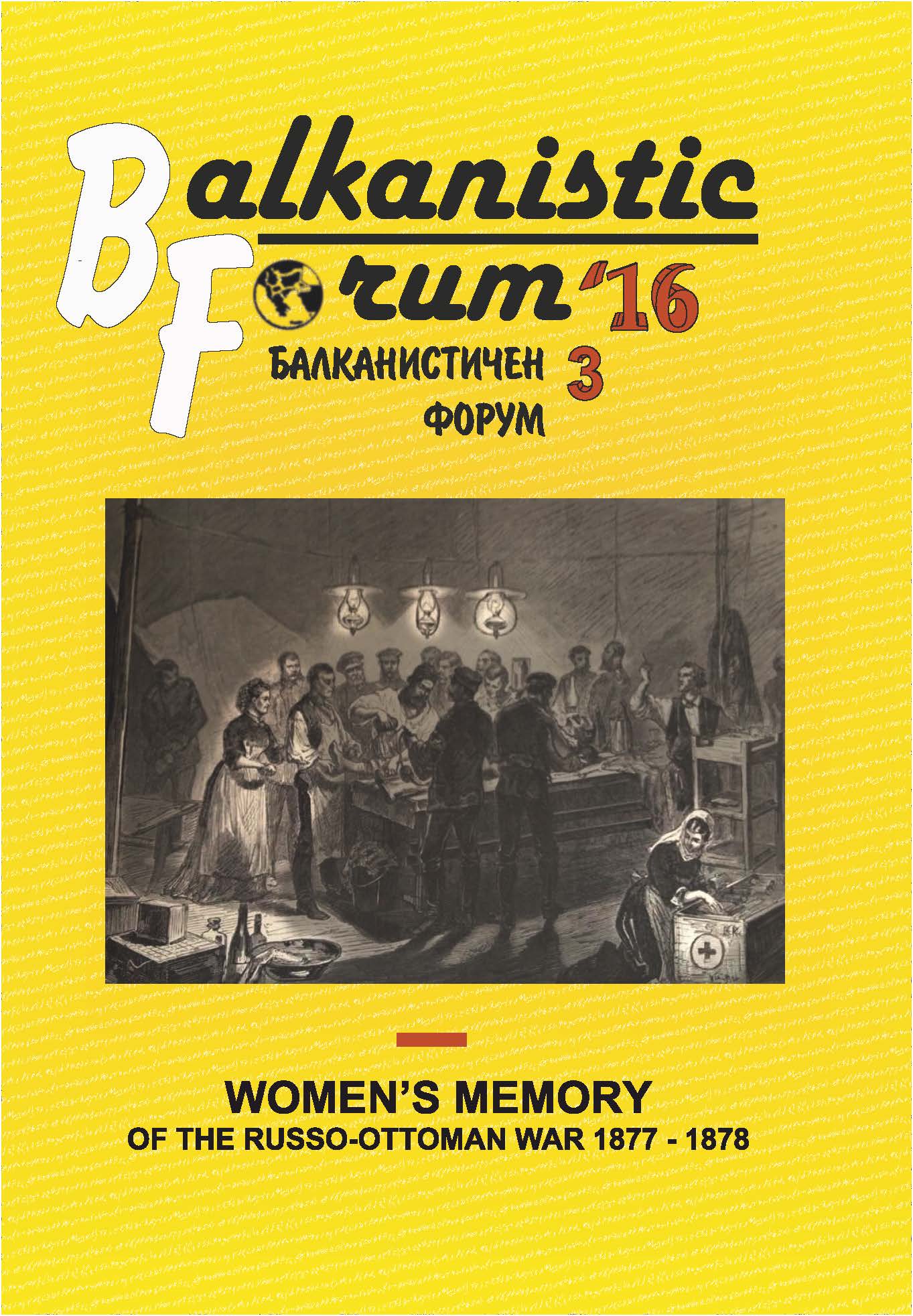
We kindly inform you that, as long as the subject affiliation of our 300.000+ articles is in progress, you might get unsufficient or no results on your third level or second level search. In this case, please broaden your search criteria.


The Russo-Ottoman war 1877 – 1878 was an important challenge for the peace activists in Europe: for religious war-resistance groups, for pacifists, as well as for supporters of social justice. Pacifists started new iniatives for maintaining peace. They tried to prevent the war by organization of international conferences, to reduce the participation in the war, to find new forms like arbitration or Inter-parliamentary union. For many of the most prominent figures of the peace movement in the second half of the 19th century: Henri Richard, Frederic Passy, Leo Tolstoy, Bertha von Suttner, the experience they achieved during the Russo-Ottoman war was very important for shaping their views. Bertha von Suttner (1843-1914) lived during the time of the Russo-Ottoman war 1877 – 1878 in Caucasus not far from the front line. Traditionally educated to admire military activities, she described in her memoirs how her attitude toward the war started to changeas a result of her experience there. Her expeperience from 1877 – 1878 contributed to the change of her views which made her a leading person in the anti-war movement in Europe in the next decades.
More...
The nationalistic mythical image of women as heroines defending the homeland as an auxiliary power alongside men during vital battles can be best illustrated by the example of Nene Hatun (1857-1955) who is generally presented in the collective memory in Turkey as a woman hero playing a symbolic role in the battlefield near Erzurum during the Russo-Ottoman War of 1877 – 1878. She had performed exceptional bravery during her unexpected participation in the military combat as a leader of some civilians. One of the aims of this essay is to explain the essence of the terms ‘exceptional’ and ‘unex-pected’ in the previous sentence in the framework of discussions on women heroism, on militarism, on popular memory and on construction of modern collective identities.
More...
The article elaborates on the mechanism used to construct the memory and to mythologize the figure of Hristina Hranova (1851/52 - 1922) who allegedly has taken part in the Russian-Ottoman War of 1877 – 1878. The major focus is on her biographical narrative, created by herself (and latter on used by her "biographers" during different historical periods since 1878 until today. Hristina Hranova’s image has been not only promoted in popular historical writings with more and more exotic nuances. Lately she has been also tacitly institutionalized, which is a significant step towards her mythologization.
More...
The paper presents the biography and philanthropic activities of Lady Emily Ann Strangford (1826-1887) for Bulgarian peasants (1876-1877) and for Turkish refugees (1877 – 1878). The authors deal also with the way the memory about her surfaced in the next decades. Although streets and schools in Bulgaria were named after her, the memory about her as an important local historical figure is particularly strong in some small places (like Radilovo village). The reasons of the 'regionalization' of the memory about Lady Strangford in Bulgaria are to be found in the characteristics of the memory cultures. She was convinced in her duty as a Christian, as a Victorian British noble, and as a woman to help Christian and Muslim people who suffered before, during and after the Russo-Ottoman war. Her motives for making people of both sides less suffering were not understandable for everybody. Those who expected absolute and unconditional support for their political cause were disappointed. In Bulgaria she was criticized for sympathies for the Turks. In the Ottoman Empire her active charity work in organization of hospitals and orphanages was overshadowed by other great philanthropic projects. The official politics of national memory, as well as the popular memory are similar in Bulgaria and in Turkey. They are similar in their demands of unconditional support for their national causes. Both cultures of memory show more higher appreciation for political than for humanitarian activities.
More...
The authors deal with the oral transfer of memory of women migrated to Ottoman Empire (Muhajir movement) after the annexation of Muslim Ajara by the Russian Empire in 1878. The research is based on study trip in former ethnical territories, which nowadays are part of Turkey, and in the inner provinces of Turkey. From generation to generation, people from different parts of Georgia and outside of Georgia were passing the stories about the "great resettlement". The interviewed women point to the Russian oppression as a main reason for the migration. Some women blame the two rival Empires for the misfortune of the Georgians. Particularly interesting was the information about the secret writing system ‘dedabruli’ created by the Georgian women to safeguard the secrecy of the correspondence under the Ottoman rule. The information about Georgian women serving as nurses or collecting money and cloths to support the Georgian soldiers during the war has also been provided.
More...

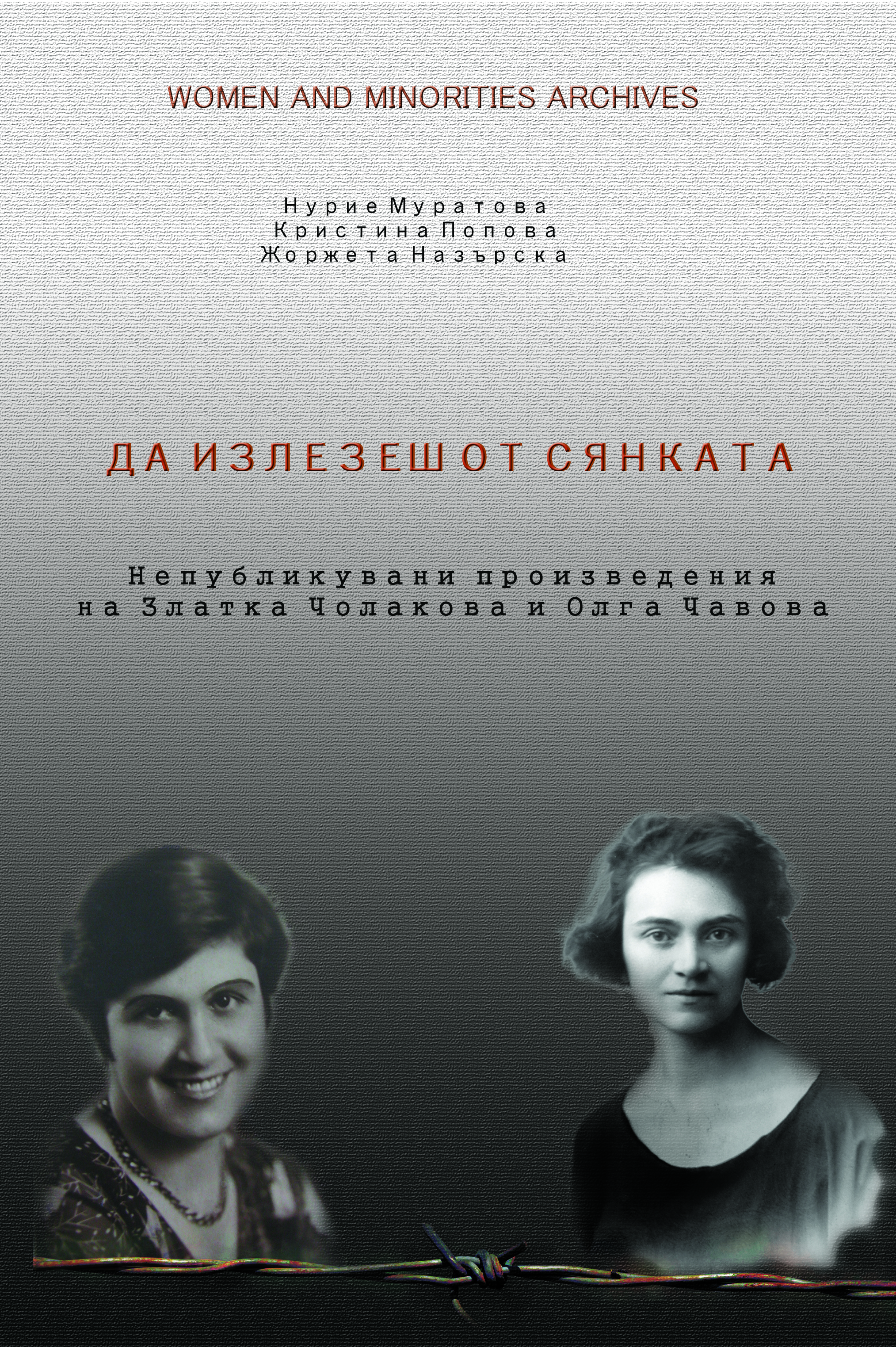

Olga Chavova (1893-1973) is a musician and writer. She was born in Svishtov. She is the author of the books “Wanderer” (1939) and “From Bremen to the North” (1940). She was arrested by the communist authority in 1944. We publish for the first time her diary from the prison.
More...
Zlatka Cholakova (1899-1985) is a teacher and writer. She was born in the village of Markovcha (Shumen region). She is the author of the books “To Hungarians and Germans“ (1930), „Fairy countries” (1933), “America: sketches” (1937), “The song of the fiord” (1939), “30 days in the Soviets” (1944), „Kadrie“ (1953) and others. We publish for the first time her travel notes, memoirs and satirical stories critical to the communist regime.
More...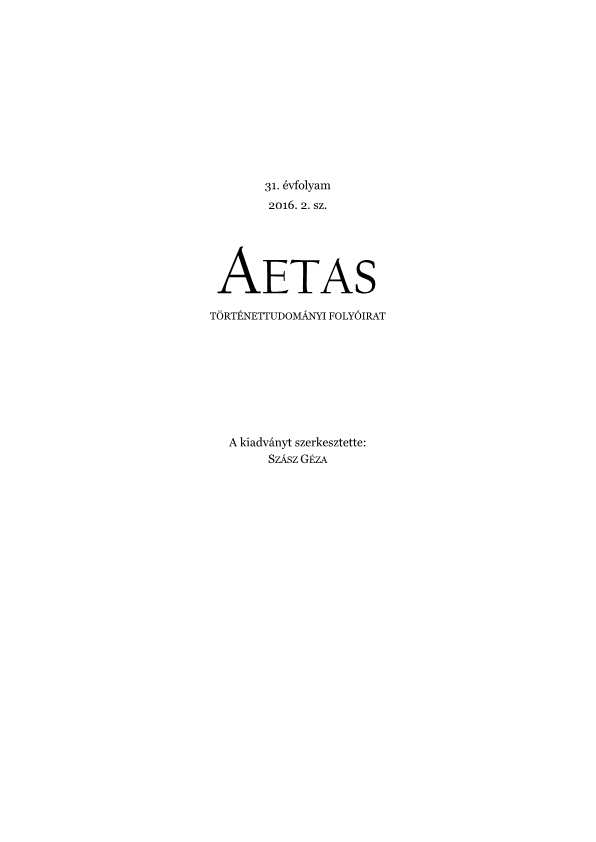
Ruby Lal: Coming of Age in Nineteenthcentury India. The Art of Playfulness. Cambridge University Press, Cambridge, 2013. 229 oldal
More...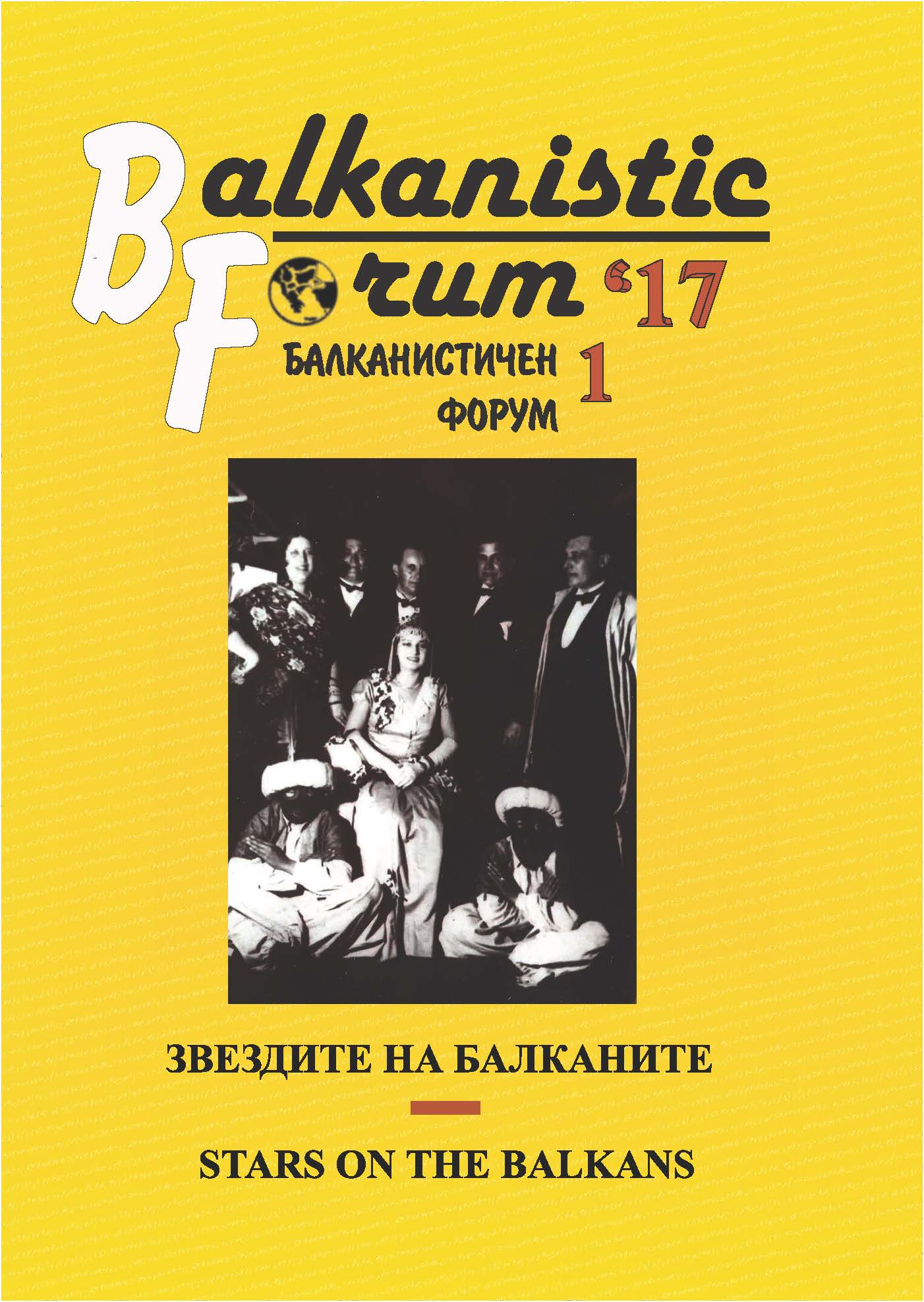
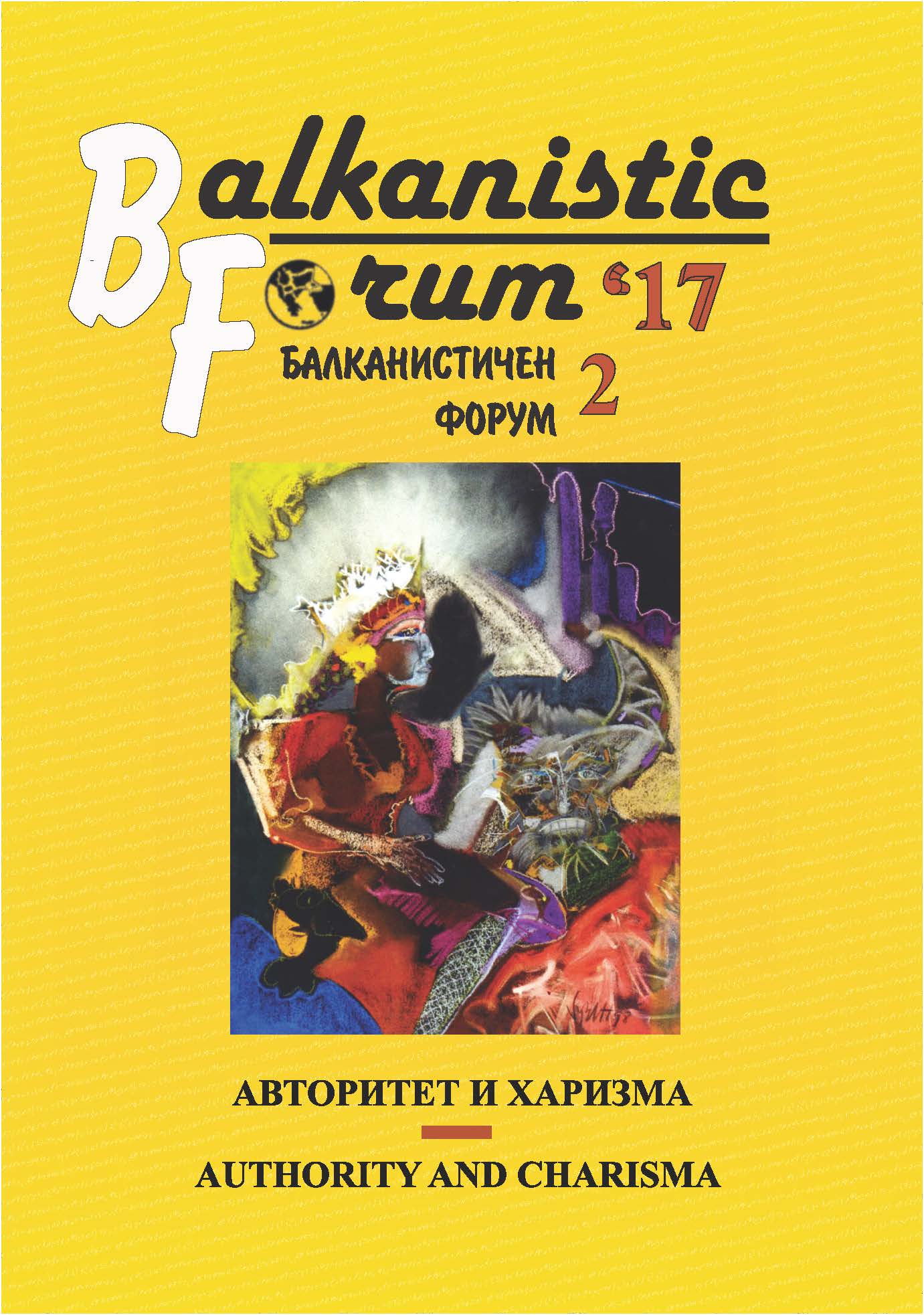
The paper examines the naming of public institutions (schools, hospitals, community cen-ters, libraries, theaters, galleries, cultural centers, concert halls, mines, ships) or parts of them after prominent Bulgarian women from the late 19th century up to now. A major problem is the functioning of the symbolic "sites of memory" (Pierre Nora) in view of the collective memory of Bulgarian women and with particular emphasis on social transfor-mations in the middle and at the end of the 20th century. Based on the mostly unused ar-chival sources are analyzed: the complicated process of "inclusion" of Bulgarian women in public space and in the cluster of so-called reputational elites; the political conditioned replacement of certain individuals with others as patrons of institutions in the 1940s and the 1980s; the "visibility" of women in the “social field” during the 20th century.
More...
The review presents the first “feminist walk” in Blagoevgrad (23 April 2016) organized by University teachers from the South-West University “Neofit Rilsky”. The route was initiat-ed as a part of the project of the Bulgarian Association of University Women to outline the women contribution in the history and to connect places of the women’s cultural memory in the urban spaces. Such “feminist walks” were organized in Sofia (2015), Rousse (2016), Blagoevgrad (2016) and will continue in other towns in Bulgaria.
More...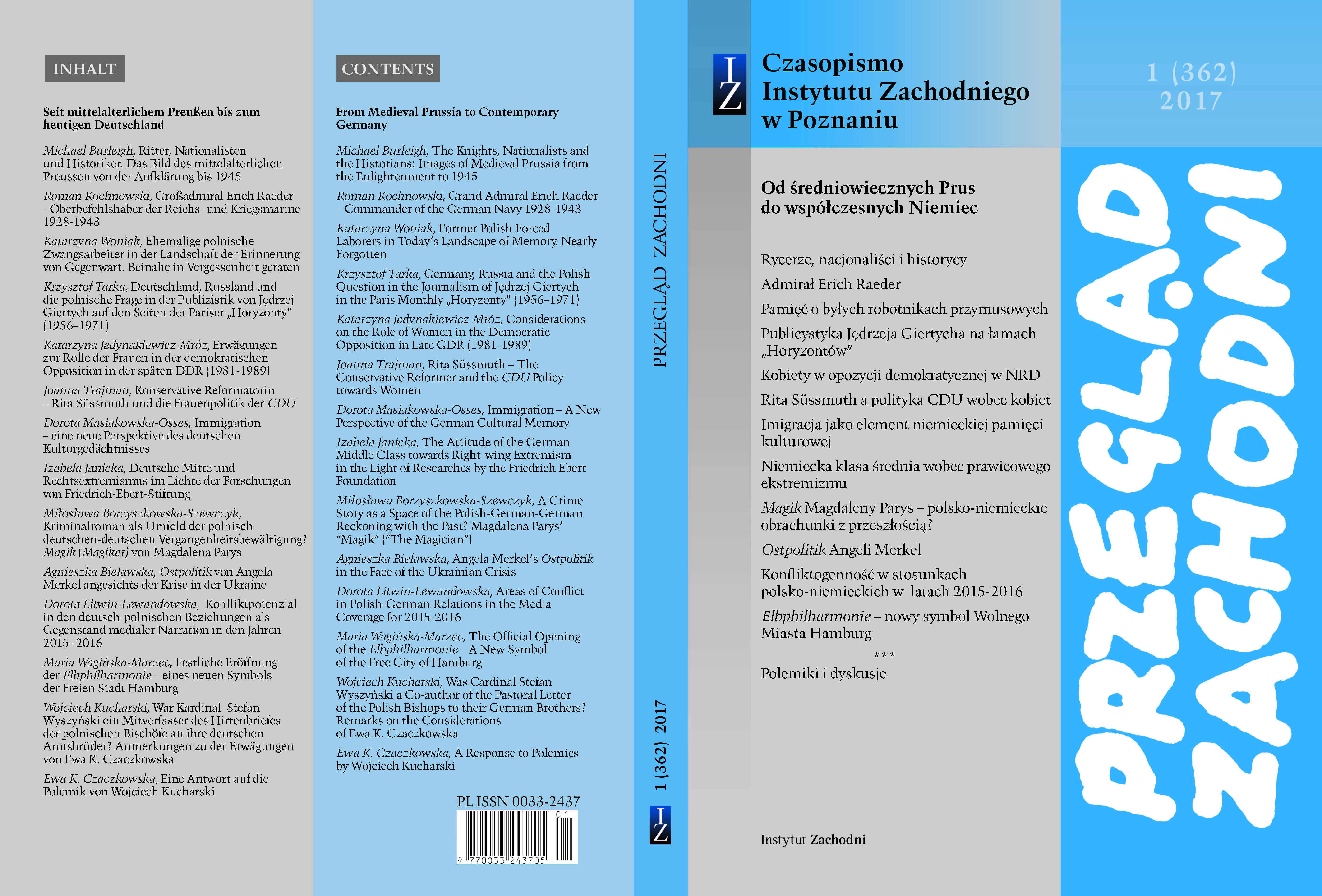
Social and political changes taking place in Germany since the late 1960s contributed to the creation of a new women's movement and the alteration in the status of women. These transformations were also evident in the voting preferences, mostly of the young women, who began to vote, not for the CDU as was previously the case, but for the left-wing parties. Therefore, the assumption of the Chancellor's office by Helmut Kohl in 1982 could not mean a continuation of the traditional policy of the Christian Democrats towards women; on the contrary, it had to lead to its alteration. A highly symbolic expression of that change was the national party congress on women’s issues held in Essen in 1985 and the appointment of Rita Süssmuth as the first Federal Minister of Family Affairs, Senior Citizens, Women and Youth. The new minister, who was led by Christian values, attempted to adjust the Union’s policy towards women to the changed social realities, thus becoming a conservative reformer. Her views and actions relating for instance to the women's quota, extension of the institutional care over children or the pension for women, encountered the opposition from the party. Her activity as the President of the Bundestag was also criticized on the grounds that she was involved in the issues regarding the condone of abortion and the marital rape – the topics which were considered to be controversial by the Christian Democrats. However, because of the ability to engage in cross-party alliances and her conviction of the validity of her solutions, Süssmuth has become the symbol of the modern CDU policy towards women.
More...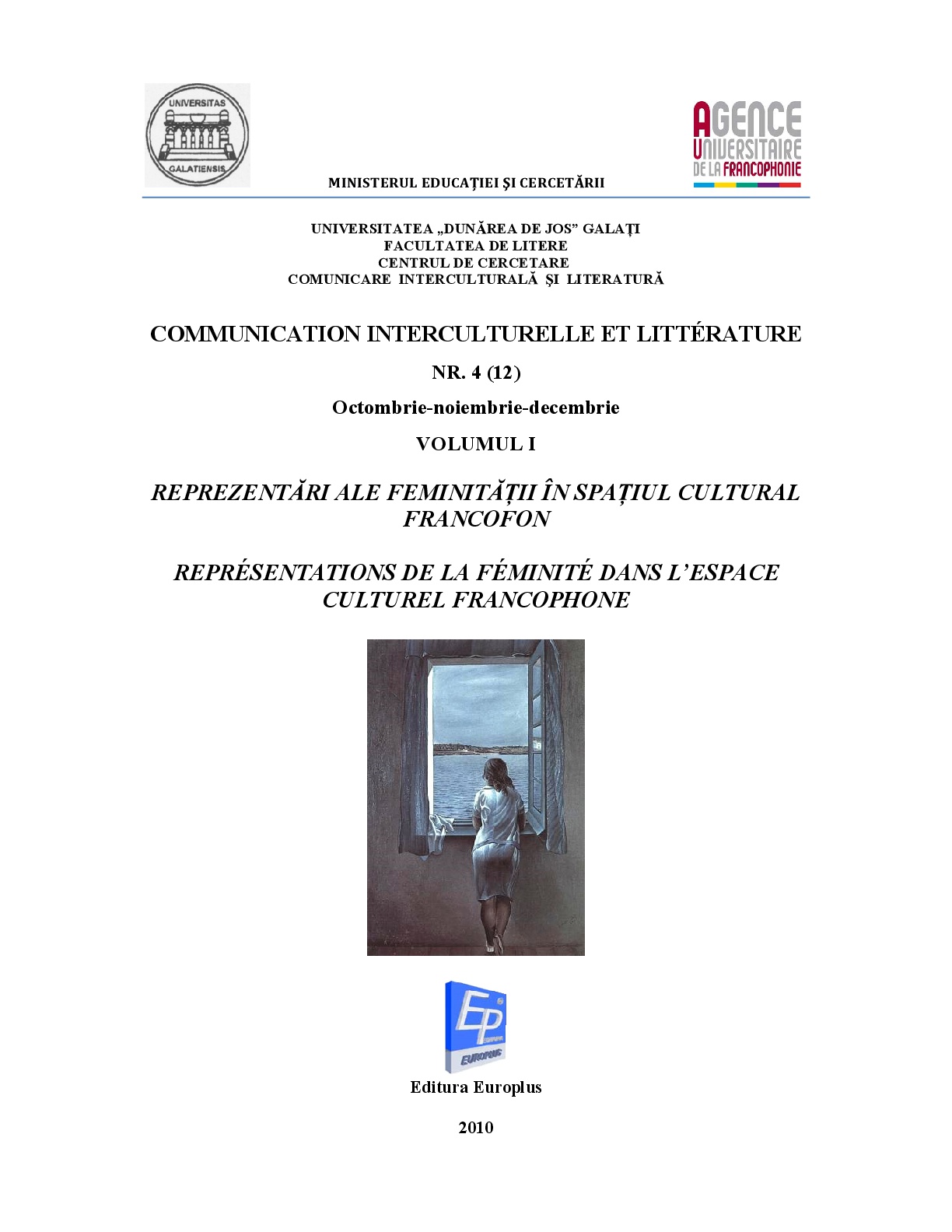
Dans The Straight Mind (La Pensée Straight), Monique Wittig propose une déconstruction de l’idéologie hétérosexuelle en tant que système politique d’un point de vue lesbien, en se plaçant donc à la marge de l’hétéro-patriarcat pouvoir mieux l’examiner et le subvertir. En remettant en cause le mythe essentialiste de « La » femme, l’auteure pose le lesbianisme comme une identité affective mais surtout politique et économique de résistance à l’hétéro-sexisme et au patriarcat. Cet ouvrage est l’un des ouvrages théoriques fondateurs du féminisme matérialiste et par extension des Gender Studies puisqu’il implique le questionnement même des catégories de sexe/genre social. C’est ce féminisme « à la française », né à la fin des années 1970 et inclus dans le corpus de la French Theory, qui a donné naissance aux Gay & Lesbian et aux Queer Studies aux Etats-Unis avant de rayonner dans tout l’occident jusqu’à aujourd’hui. Dans Les Guérillères et Le Corps lesbien en particulier, l’auteure rend un hommage lyrique aux corps des femmes totalement « décolonisés » de l’emprise des hommes (les femmes ne sont-elles pas « le continent noir » d’après Freud ?), créant ainsi une nouvelle mystique lesbienne, entre poésie et politique. Dans cette optique, je propose une analyse de l’assertion de Wittig selon laquelle « les lesbiennes ne sont pas des femmes » à la lumière du travail de Simone de Beauvoir, Collette Guillaumin, Christine Delphy et bien entendu Beatriz Preciado, Teresa de Laurentis et Marie-Hélène Bourcier.
More...
eorije i politike roda: Rodni identiteti u književnostima i kulturama jugoistočne Evrope = Theories and Politics of Gender: Gender Identities in Literatures and Cultures of South-Eastern Europe / Tatjana Rosić, ur.; Marija Grujić – Godišnjak XXII, Serija C: Teorijska istraživanja, knj. 12 – Beograd: Institut za književnost i umetnost, 2008 (Beograd : Čigoja štampa). – IV, 446 str. ISBN 978-86-7095-145-7
More...
Monica Negru is the author of the book about one of the women society from the interwar Romania, the Romanian Orthodox Society of Romanian Women, the first book about this important women organisation. The book has two parts: an extensive study about the organisation and a selection of the most improtant documents.
More...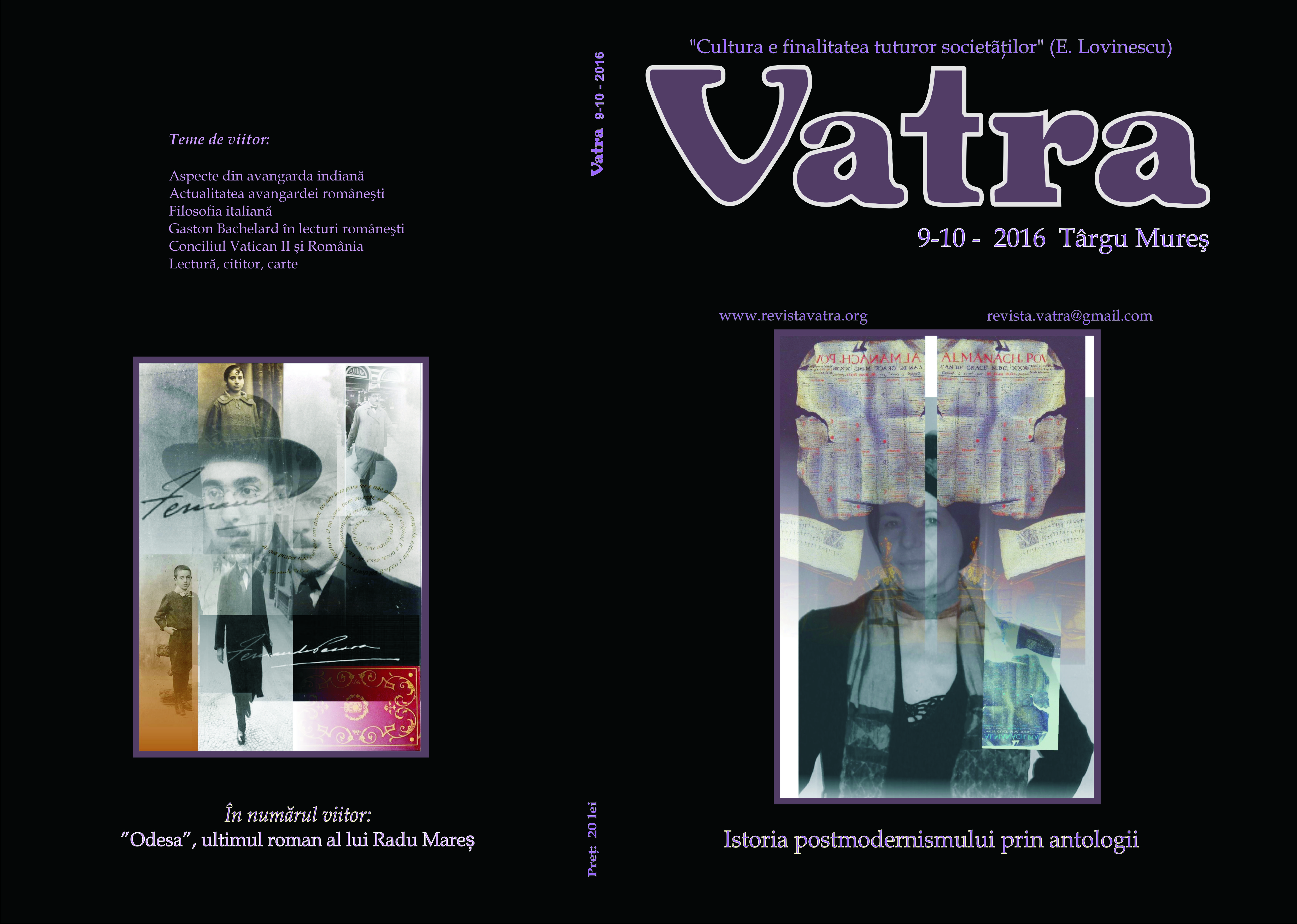
This text shows the history of Ciptoreanca and her last wish to free all her gypsy slaves in the end of the 18th century.
More...